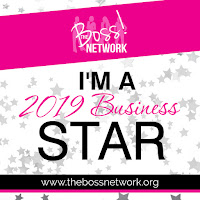3 Lessons from Great Game Changers by Arionne Nettles
When you
examine the line between smart and genius, the difference becomes quite clear –
becoming an innovator in whatever your respective industry requires a great
amount of vision. So many people in our
industries have innate talent, many people are smart, but not everyone has
foresight, can trust their gut, go for the goal, and then entirely change an
industry or society. That’s pretty rare,
but guess what else? It’s also extremely
possible.
We can learn
a lot from these rule breakers about being creative and innovative enough to
push for change. Here are some lessons
we can pick up from some of the nation’s greatest game changers:
Lesson #1: Do
whatever you want…and then show them why you were right.
“If I'd asked people what they wanted, they
would have said a faster horse.”
Henry Ford – Ford Motor Co
To
be revolutionary, you have to trust your own instinct and really be fearless in
making changes that no one else has before.
It’s not always about creating something totally new, but reinventing
the norm. As Amy Gunderson explains in Inc, Henry Ford may not have been the
first major player in the American auto industry, but he successfully became
the best by staying true to his vision.
When
he decided to actually increase workers’ wages, decrease the number of hours in
the work day, and lower the price of cars to appeal to a greater number of
consumers, people thought that he was crazy.
Ford didn’t listen and when his investors protested, he just bought them
out. By listening to his gut, he
successfully changed the transportation, manufacturing, labor
relations, and advertising industries.
Ford with his infamous Model T – Photo
from the Collections of The Henry Ford via “Automobile in American Life and
Society,” University of Michigan
Being
alone in your vision is no reason to go against it. When you have a clear idea of how you want to
change your industry, let no one lead you away from it. They’ll all catch on once they see how great
it is. Intuition is a powerful thing.
Lesson #2: Never
settle and don’t be afraid to make people mad in the process.
“Details matter, it’s worth waiting to
get it right.”
Steve Jobs – Apple
Now seen as
one of the greatest business minds of our time, Steve Jobs was stubborn, often
difficult to work with, and simply stated, probably the pickiest innovators
ever. After reading Walter Isaacson's
biography of the Apple founder, that all appears to be true – including the
fact that without Jobs’ being so picky when it came to how he wanted each and
every product to be, Apple may not have grown to be the technology powerhouse
that it’s grown to be. People may have critiqued
him for those qualities, but Jobs made sure that every single aspect of his
products were perfect, even those internal design pieces that the consumer
couldn’t see. It’s all of those simple
details that Jobs so vehemently fought for, from simplistic design aesthetic to
getting rid of floppy disc drives, that are now industry norms and of course,
Apple’s competitors all followed suit.
A young Steve Jobs at the first West
Coast Computer Faire, where the Apple II computer was debuted, in Brooks Hall,
San Francisco, California, 1977 – Photo
from Biography.com
Quality is important so
no matter how long it takes you (or your employees) to get it right, never
compromise. It’s in those details that
can make you exponentially better than your competition, making them bring their
A game if they want to be as great as you.
As Jobs also said, “"A great carpenter isn’t going to use lousy
wood for the back of a cabinet, even though nobody’s going to see
it." It shows a level of integrity
and that is something that every talented person just doesn’t have.
Lesson #3: View the
world as a huge classroom – learn and
teach in it.
“When you learn, teach, when you get, give.”
Maya Angelou
– Writer, poet, filmmaker, Renaissance woman
A renowned
writer and poet, Maya Angelou first spent the early part of her adulthood doing
a crazy amount of different things – singing, dancing, political activism, directing,
you name it. Whether walking on the
other side of MLK or working as San Fran’s first black streetcar conductor, the
Renaissance
woman has used the
entire world as a platform for learning and uses those to contribute to her
great books and poetry. Moreover, Dr.
Angelou has diligently worked to spread knowledge, both as a prominent
professor, teaching in countries all over the world, and becoming a mentor and
a voice for many.
Check out the
video below of Maya Angelou on Oprah’s Super Soul Sunday, explaining how she
became a mentor, sister, mother figure, and friend to Oprah, and also a clip of
her performing in the movie, “Calypso Heat”:
Once you change the
game, you’re going to have to help someone else. As business sisters, regardless of industry,
it’s our duty to reach back to younger BOSSes and teach them what we know. “I am my sister’s keeper.”
Connect with Arionne on Twitter @AriAlyssa and @urbanshakemag visit her online at www.arionnealyssa.com, www.urbanshakemagazine.com and like her on Facebook at USM Facebook Page
Check in with us next month for great information on:
Marketing
Connect with Arionne on Twitter @AriAlyssa and @urbanshakemag visit her online at www.arionnealyssa.com, www.urbanshakemagazine.com and like her on Facebook at USM Facebook Page
Check in with us next month for great information on:
Entrepreneurship
Business Strategy & Execution





Comments
Post a Comment